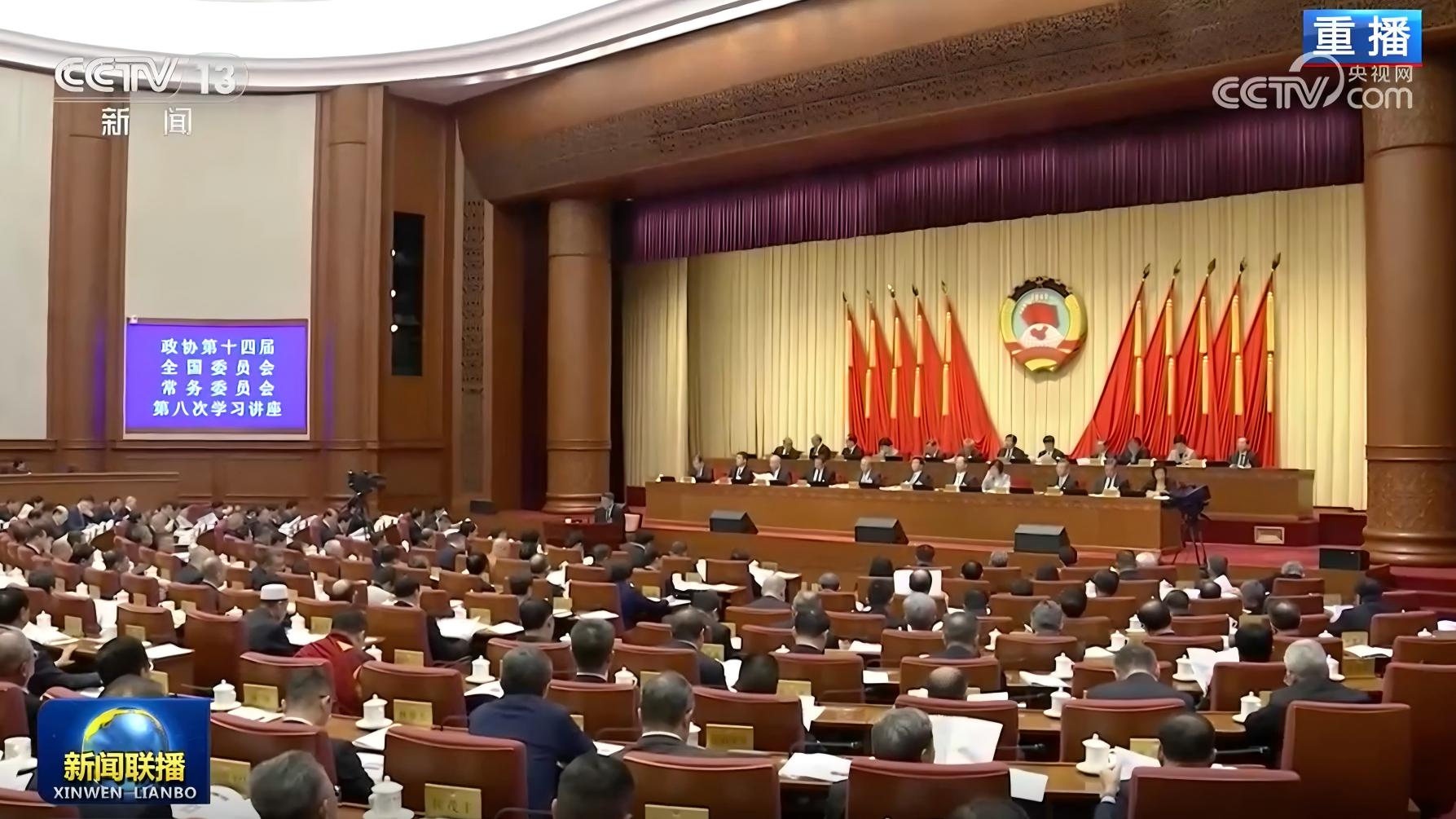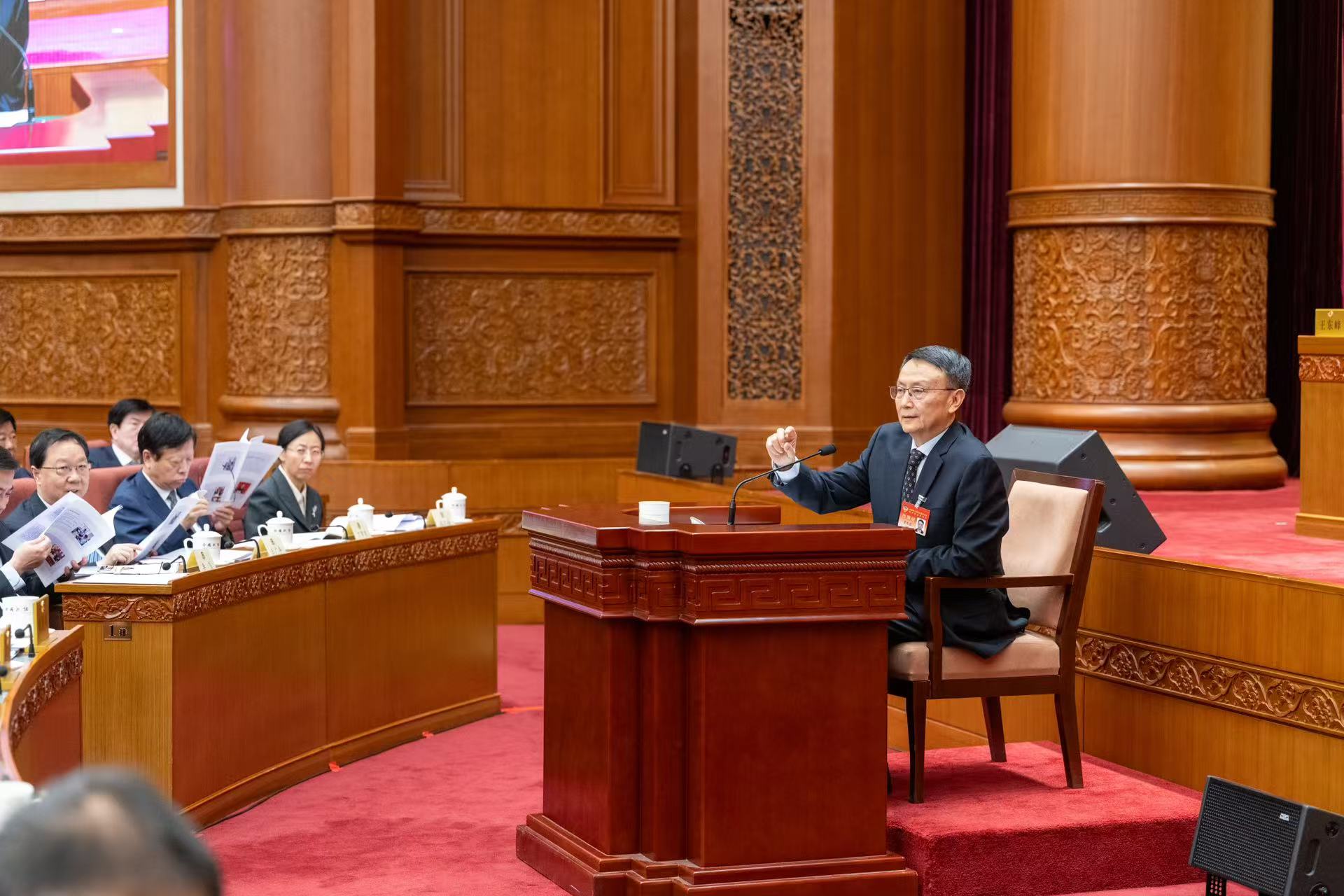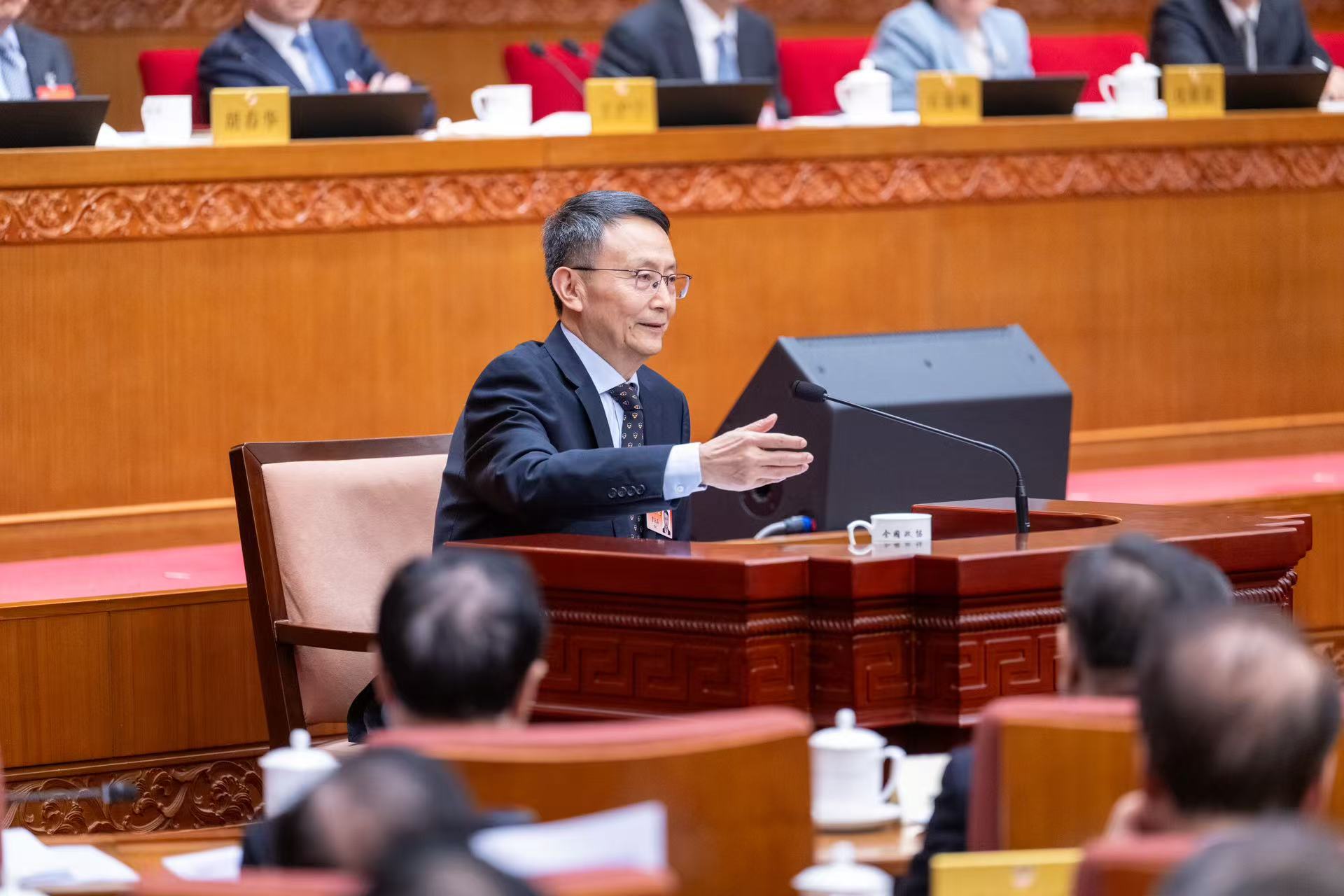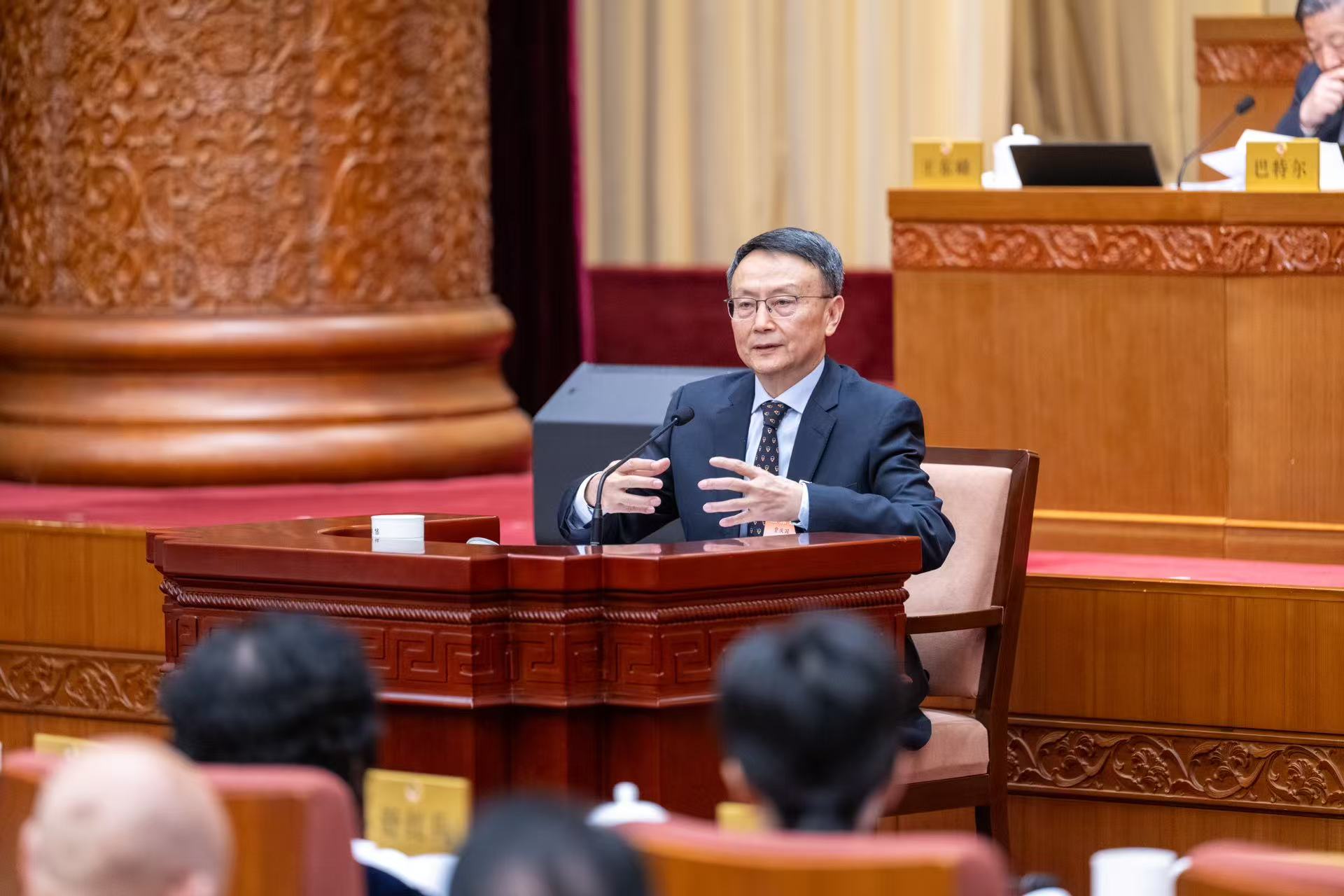In the afternoon of March 2, 2025, after the closing of the 10th meeting of the Standing Committee of the 14th Chinese People's Political Consultative Conference(CPPCC) National Committee, Jia Qingguo, Member of the Standing Committee of the CPPCC National Committee, Professor of the School of International Studies and Director of the Institute for Global Cooperation and Understanding(iGCU) at Peking University, was invited by the Office of the Special Committee on Culture, Historical Data and Studies of the CPPCC to give a lecture to the members of the Standing Committee and attendees on Chinese Path to Modernization and Global South Development, and answered the questions raised by the members.
On March 2, the closing meeting and the lecture were reported by CCTV's News Simulcast.


Professor Jia Qingguo began his analysis by referencing President Xi Jinping’s important speech at the BRICS+ Leaders’ Dialogue in October 2024 and the congratulatory letter sent to the Global South Media and Think Tank Forum in November. He elaborated on the essence, historical evolution, and key drivers behind the success of Chinese-style modernization. He analyzed its inspirational and instructive significance for the development of the Global South, outlined opportunities and challenges in advancing cooperation between China and Global South countries, and proposed his perspectives and recommendations on how China could leverage opportunities and address challenges.

Professor Jia emphasized that Chinese-style modernization represents a historical process shaped by the dynamic interplay and integration of multiple Chinese elements with modernization. Compared to the modernization paths of Western developed nations, Chinese-style modernization exhibits distinctive features: internal reform and innovation coupled with external openness and cooperation under the leadership of the Communist Party of China; prioritization of the collective interests and long-term development of the people, with a commitment to common prosperity for all; emphasis on ecological conservation while pursuing economic growth; and steady advancement of reforms under the premise of maintaining political stability.
Against the backdrop of the collective rise of Global South nations, the experience and philosophy of Chinese-style modernization hold profound significance. Professor Jia noted that China’s modernization success serves as both inspiration and guidance for the Global South. As inspiration, China—the world’s largest developing country—transformed itself from a impoverished nation to the world’s second-largest economy within a remarkably short timeframe, achieving the historic leap from "standing up" to "becoming prosperous" and "growing strong".This accomplishment instills hope and confidence in other developing countries, demonstrating that similar modernization goals are attainable through dedicated efforts and localized exploration.
In terms of guidance, Professor Jia highlighted four key lessons: First, adhering to an independent development path forms the foundation of success. Second, leveraging comparative advantages through opening-up and applying global wisdom and resources serves as a critical condition for development. Third, implementing gradualist reform strategies provides an effective pathway. Fourth, balancing reform, development, and stability represents the golden formula for sustainable progress.
Professor Jia also systematized the opportunities and challenges in China’s cooperation with the Global South. On one hand, the growing demand for collaboration among Global South nations creates vast potential for mutual development and win-win outcomes. On the other hand, challenges arise from the complex international landscape, diverging interests between China and Global South countries, and internal interest competitions within the latter. Professor Jia proposed that China and Global South nations should strengthen communication and consultation, seize opportunities, manage differences, deepen cooperation, and jointly elevate their relations to new heights.

On March 2, the closing meeting and the lecture were reported by CCTV's News Simulcast in the evening.
Source: School of International Studies, Peking University
Video: CCTV News Simulcast
